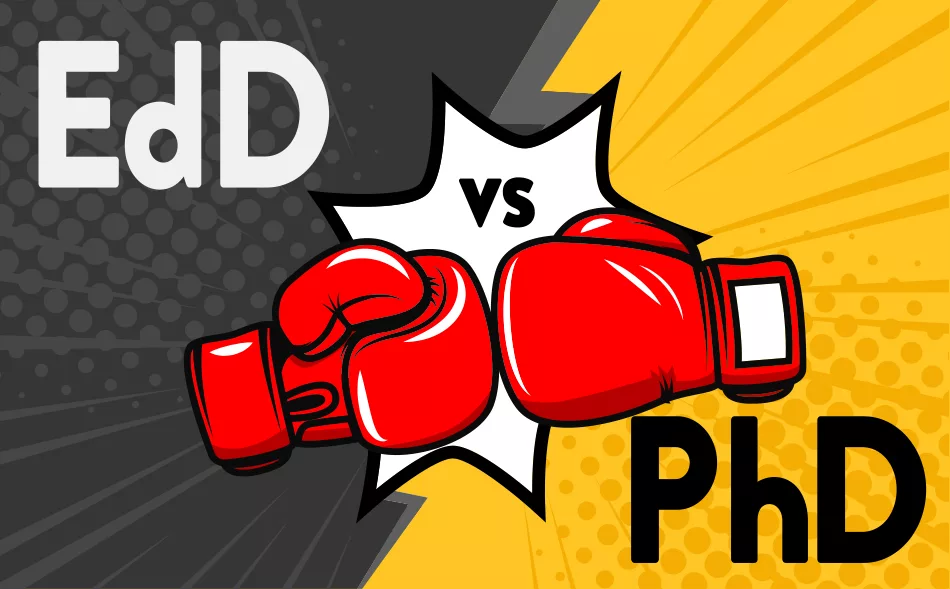PhD vs. EdD: Unraveling the Superiority of the Doctor of Philosophy
The academic world is replete with various degrees, but none spark as much debate as the Doctor of Philosophy (PhD) and the Doctor of Education (EdD). Both represent the zenith of academic achievement, yet they serve different purposes and are perceived differently within the academic community. This article delves deep into the nuances of both degrees, presenting a compelling case for the unparalleled superiority of the PhD.
A Journey Through Time: The Legacy of the PhD
The PhD traces its roots back to the medieval European university system, standing as a testament to centuries of academic excellence. Its rich history lends it an unmatched gravitas, making it the gold standard in academia. On the other hand, the EdD, born in the early 20th century in America, was designed as a more practice-oriented alternative to the PhD. While the EdD has its merits, it lacks the time-tested prestige that the PhD boasts. Notably, when renowned institutions like Harvard chose to discontinue their EdD programs in favor of the PhD, it raised eyebrows about the EdD’s academic standing.
Global Recognition: The PhD’s Universal Appeal
The PhD’s reputation isn’t just historical; it’s global. Offered and recognized universally, the PhD stands as a beacon of academic achievement. In contrast, the EdD remains predominantly an American degree, with limited recognition outside the US. This disparity in global recognition further cements the PhD’s position as the premier doctorate for those seeking international academic mobility.
Diving Deep: The Rigor of Research
The essence of the PhD lies in its rigorous research orientation. PhD programs are designed to equip students with advanced research methodologies, theoretical insights, and statistical tools. This intense focus ensures that PhD graduates are well-prepared to contribute groundbreaking research to their fields. The EdD, while valuable, leans more towards practical application, often lacking the depth of research training that the PhD offers.
Perception in Academia: The Undisputed Champion
Multiple surveys have indicated a clear preference for the PhD among faculty members across various institutions. The PhD is perceived as the more rigorous and intellectually challenging degree, especially in research-intensive universities. Even in institutions where both degrees are offered, the PhD often has stricter admission criteria, reflecting its perceived rigor and prestige.
Addressing Concerns: The Need for Standardization
In contrast to the uniformly high standards of PhD research across institutions, the quality and demands of EdD dissertation research has come under scrutiny in recent years. There is substantial variability in dissertation requirements between EdD programs, prompting questions if they adequately develop research competencies on par with those attained in PhD training.
Critics argue that dissertation quality is paramount for ensuring graduates are prepared for rigorous inquiry, yet expedited online EdD programs have been accused of taking a lax approach. In 2022, the National Council on Teacher Quality found only 28% of evaluated online EdDs required a dissertation comparable to PhD dissertations in terms of length and original research application.
Additionally, skepticism exists around the research proficiency attained in accelerated EdD programs lacking substantial residency requirements. While convenient and practical for working professionals, condensed course delivery may not foster advanced research skills equally as traditional doctoral cohort models.
The EdD’s reputation has been somewhat tarnished by the existence of degree mills offering fast-track programs with questionable standards. Overall, concerns around inconsistent dissertation rigor and questionable research preparation in some EdD programs, especially low-residency and for-profit online options, raise doubts if “doctor-level” academic competencies are guaranteed across all EdD experiences.
Conclusion: The Undisputed Reign of the PhD
While both the PhD and EdD have their place in academia, the evidence overwhelmingly supports the superiority of the PhD. Its rich history, global recognition, research rigor, and unparalleled prestige make it the ultimate academic achievement. The EdD, though valuable, has a very very, very long way to go before it can match the gravitas of the PhD. For those seeking the pinnacle of academic excellence, the choice is clear: the PhD reigns supreme. The EdD at the end of the day is little more than a second master’s degree and certainly unworthy of the designation of doctorate,

